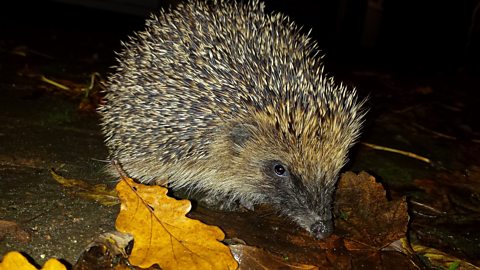You may well know that birds lay eggs. But did you know that they don't just lay their eggs in nests?
These birds are called maleo fowl and they lay their eggs in the sand and they dig great big pits to bury them in. The sand here is nice and warm so it helps the eggs to hatch.
These birds are called swifts and they lay their eggs somewhere very wetŌĆ” behind a waterfall! The swifts have to fly right through all the water to get to their nests. It's a good hiding place for their eggs, though.
These fairy terns just lay their eggs right onto the branch and hope they don't fall off! That egg is not very well hidden, is it? It doesn't look safe at all. Oh! The birds have knocked it off.
Laying your eggs in a nest is much safer, because then they're better protected and can't fall out.
Lots of other animals lay eggs too. This egg is starting to hatch. Do you know what it is? It's a baby crocodile! Crocodiles lay eggs too.
Mosquitoes lay their eggs in little rafts on the surface of the water. The mother looks after the eggs until they're ready to hatch.
These are tree frogs and they lay their eggs on a leaf up in the trees. When their babies hatch, the tadpoles plop down into the pond and then swim away.
These red crabs are laying their eggs straight into the sea. All the eggs are stuck to their tummies so they have to jump up and down to wash them away into the water.
This moth is laying lots of tiny eggs onto a branch. Round and round she goes, covering the branch with eggs.
You might have known that birds lay eggs, but now you know that moths lay eggs. Frogs lay eggs. Crabs lay eggs. And even crocodiles lay eggs too.
Video summary
A look at the many different places where animals lay eggs.
Maleo fowl lay eggs in the sand, swifts lay eggs behind a waterfall, fairy terns lay eggs on a branch, mosquitoes lay eggs on the water, tree frogs lay eggs on a leaf, red crabs lay eggs in the sea, and moths lay eggs on a branch.
This clip comes from the ┤¾Ž¾┤½├Į series, Our Planet: Eggs and Green.
Teacher Notes
- This clip could be useful as part of a study of variation.
- The clip could be used at the start of the lesson to introduce pupils to spotting differences and similarities between animals.
- The pupils could be asked at the end of the clip to talk to a partner about anything that was similar about the featured animals and anything that was different. The clip could then be viewed again, paused after each animal, and observations collated and displayed in notes on the board.
- Following this, the pupils could complete a simple matching activity to match the correct animal to the place where it lays its eggs, or they could work in pairs to complete a ŌĆśguess whoŌĆÖ style activity using the features noted in the clip.
This clip is relevant for teaching Science at KS1 in England and Wales, Foundation and KS1 in Northern Ireland, and early level and first level in Scotland.
Animals that live in the sea. video
Discover examples of sea life and see how they move underwater in this video about marine animals.
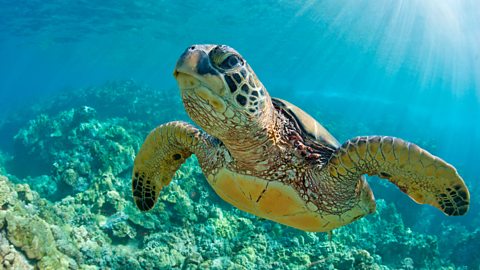
Animals with spots and stripes. video
The natural patterns of giraffes, leopards, tigers and zebras are celebrated in this video about spotted and striped animals.
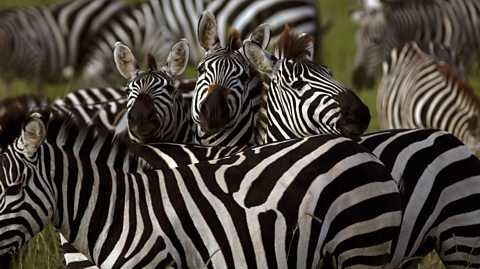
Characteristics of amphibians. video
Amphibians live in and out of water, and even transform from tadpoles into frogs, in this video slideshow.
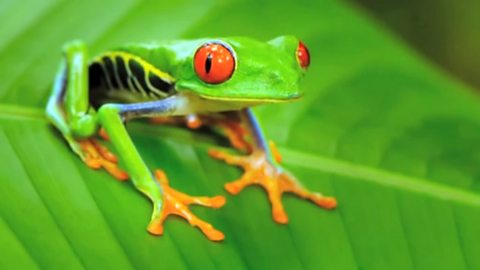
Characteristics of fish. video
Adaptations like fins and tails help all kinds of fish, even giant sharks, to live underwater in this video slideshow.
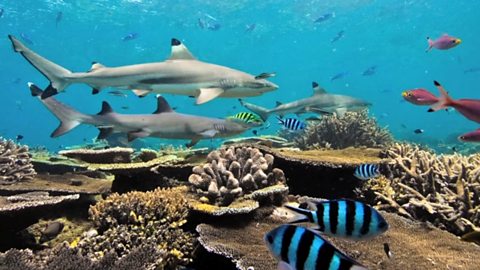
Characteristics of spiders. video
Discover how spiders use their eight legs and eyes to spin webs and hunt insects in this KS1 Science video on types of animals for primary schools.
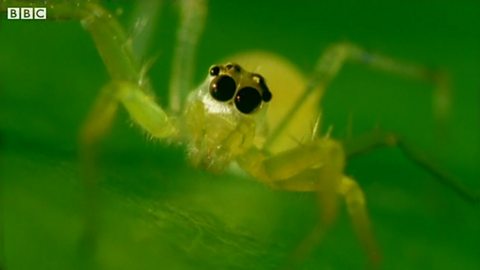
Nocturnal animals and birds. video
Barn owls, mice, hedgehogs, bats, badgers, moles and worms come out at night in this video about nocturnal animals.
